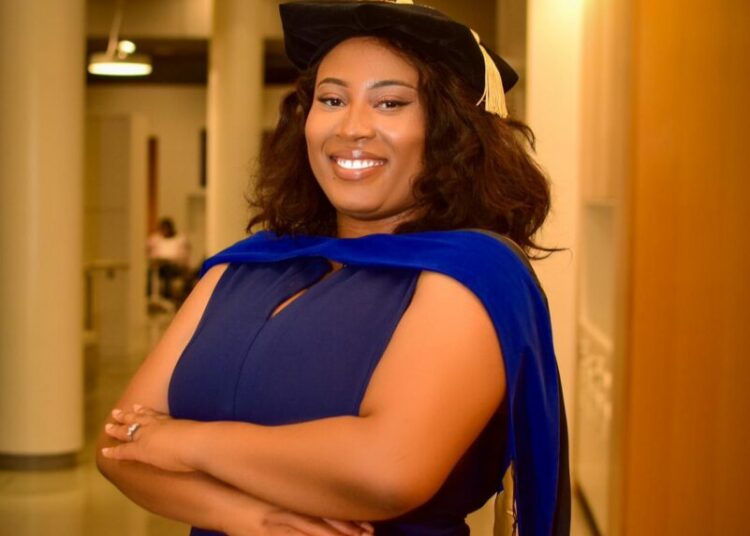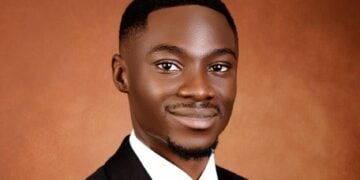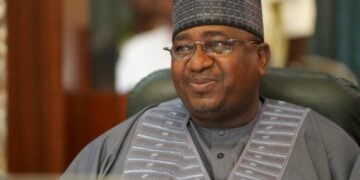An indigene of Ondo State, raised in Jos, Plateau State, Dr. Mercy Fash’s story is one of resilience, determination, and impact. From her early days in Nigeria to becoming a respected researcher and educator in the United States, she has dedicated her life to empowering students and breaking barriers in science and engineering. In this exclusive interview with our correspondent, Dr. Fash shares her journey from Nigeria to the United States, her passion for research, and her message for the next generation of Nigerian scholars.
Q: Can you tell us about your early life and how your Nigerian upbringing shaped your career path?
A: I am originally from Ondo State but grew up in Jos, Plateau State. Growing up in the North exposed me to diversity and resilience. It also instilled in me a deep respect for education and community, which have been guiding principles in my career. My early experiences taught me the privilege of education and those early experiences shaped my determination to pursue excellence and to use my knowledge to uplift others.
Q: You began your academic journey in Nigeria before moving to the U.S. What was that transition like?
A: I earned my B.Sc. in Computer Engineering at Caritas University, Enugu. My thesis focused on designing and developing a search engine link hub system to linked research sources for easy access. Transitioning to the U.S. for graduate studies at N.C. A&T was both challenging and rewarding. I obtained my M.Sc. and Ph.D. in Technology Management there. The transition demanded hard work, self-learning and development, but it also opened opportunities to engage in high-impact research that continues to inspire my work today.
Q: Your Ph.D. research has gained recognition. What is its central focus?
A: My dissertation is titled “Development of a Femalized Kinesthetic Learning Model to Increase Architecture, Engineering, and Construction (AEC) Career Interests in African American Middle School Girls.” In simple terms, my research is about helping more young girls see themselves in engineering and construction careers.
The AEC industry faces two big problems: not enough skilled workers, and very few women entering the field. To tackle this, I created a hands-on learning approach where students, especially girls, learn by doing. Instead of just sitting in a classroom, they take part in fun, practical activities like building bridges, creating models, or working on mini-construction projects. These activities make engineering less intimidating and more exciting. When girls get to see that they can design, build, and solve problems, it builds their confidence and makes them more likely to consider engineering and construction as real career paths. My ultimate goal is to close the gender gap and inspire a new, diverse generation of engineers and builders who will shape the future.
Q: Beyond research, you have been actively involved in teaching and mentoring. How many students have you worked with?
A: Over the years, I have mentored and taught more than 250 students in engineering, technology, and science departments. Many of them have gone on into different industries, or to present their research at national conferences, and some have even won institutional, state and national awards. Seeing my students succeed has been one of the greatest joys of my career.
Q: Which awards and recognitions mean the most to you?
A: I am grateful for all of them, but the Graduate Rising Scholar Award, the Women in Science and Technology Service Award (2022), and the Outstanding Senior Graduate Teaching Assistant Award (2024) stand out. For me, these awards are not just personal achievements. They are a testament to the resilience, brilliance, and dedication of the students I have had the privilege to guide, and they represent the collaborative spirit of my work with colleagues and mentors. Each recognition reminds me that success is not achieved alone, it is built through community, teamwork, and the willingness to lift others as you climb.
Q: What message do you have for young Nigerians aspiring to follow in your footsteps?
My advice is simple but powerful: dream boldly, work diligently, and never lose hope. Every journey comes with its share of challenges, but it is resilience, focus, and faith that carry you through. I believe education is one of the greatest tools we have to transform lives, not just individually, but for families, communities, and even nations. To the Nigerian youth, especially young women, I want you to see yourselves not just as participants but as leaders in science, technology, engineering, and beyond. The world is waiting for your ideas, your innovations, and your courage.





